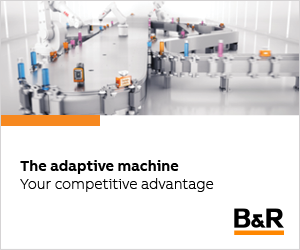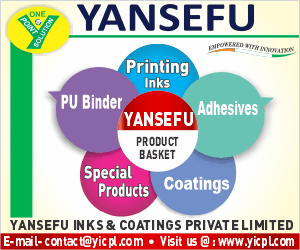
Plastic with inherent qualities such as low density, low cost, durability and easy mouldability, has become preferable material for any application. The durability of plastic which was once considered to be a boon has now become its biggest disadvantage, since management of waste created due to plastic has become a burning issue. It has been estimated that since its inception in 1950s, 8.3 billion plastic is being produced and out of which 6.3 billion is still remaining either in landfills or Oceans, and only 9% of the plastic is being recycled till now. This figure is contrary to the fact that 70% of total plastic being manufactured is recyclable. It is also being reported that 8 million metric tonnes plastic is being dumped in ocean every year. Due to these astounding figures various countries and environment bodies putting emphasis to ban plastics.
In 2016, Government of India mandated Plastic Waste Management (PWM) Rules, as per which producers and brand owners are required to devise a plan in consultation with the local bodies to introduce a collect-back system. This system is known as the Extended Producers Responsibility (EPR). As per Extended Producers Responsibility, producers have the responsibility of plastic waste collection and management. Worldwide many countries are following this strategy and it has been proven across the globe. There has also been emphasis on phasing out plastic packaging which is not recyclable.
EPR can be a blend of economics (shift responsibility of cost of disposal to producer), environmental (design recyclable products and discourage use of toxic components), and social factors ( meet increasing consumer demand for environment friendly product or those manufactured using recycled content). After PWM rules, numerous initiative have been taken by the packaging producers and brand owners to find alternates to non-recyclable packaging materials. Recently introduction of recyclable packaging material or single polymer-based packaging have spread across the packaging industry. UFlex introduced recyclable coextruded barrier film for oil application. Colgate, a big name in oral care, has recently introduced recyclable tooth paste tubes. The company is proposing to fully convert to recyclable tubes by 2025.

Essel Propack, a leader in manufacturing laminated plastic tubes has also introduced HDPE-based totally recyclable lamitubes – Platina 250 and Green GML 300. Kellogg is also using recyclable pouch with special compataibilizers. Various big names are also entering into plastic waste management and recycling sector. UFlex is generating fuel from 6 tonnes of their own plastic waste daily and plans to install more reactors. UFlex also launched Project PlasticFix, which aims to clean up plastic waste and convert it into products that have economic value. There have been additional efforts for managing plastic waste by making roads out of plastic waste.
With these facts, the future of plastic waste management and recycling appears to be promising, but there are numerous factors which play crucial role in plastic recycling goals. Recycling of plastic materials either involves changing it into any other physical form (mechanical recycling), chemical form (pyrolysis) or for energy recovery. For first two forms of recycling, i.e mechanical and feedstock, the composition of waste is very important; however, any kind of plastic waste is suitable for energy recovery. Plastic recycling typically involves steps of collection, segregation, cleaning and sizing.
Collection of plastic waste is first and most crucial step of any recycling be it mechanical, feedstock or energy recovery. If during collection, the plastic is effectively segregated and made contamination free, further processing steps of segregation and cleaning can be minimized. Cost-effective collection and sorting are the first two steps in value chain for recycling of plastic waste, aiming at separating and upgrading valuable recyclate. Properly segregate and cleaned plastic waste enhances the quality of recyclate making the whole process economically viable. Collection can be done in four ways, kerbside, drop-off, buy back and deposit/refund program.
Collection of plastics in uncontaminated form is a challenge in our country and it involves additional overheads, primarily due to lack of waste segregation mechanism. In India, still waste collection is done manually through unorganized sector with rag pickers and waste traders. Generally these rag pickers cannot differentiate between different plastics resulting into a mixed waste stream resulting in low quality recyclate.
Moreover, any big industrial unit for plastic waste management cannot be dependent on this type of collection system, as continuous feeding is required to run the plant and making the process economically attractive. Additionally, if waste is contaminated and mixed, it further worsens the situation as different cycles of segregation and cleaning are required. Ultimate need is to have a collection channel that ensures continuous flow of high-quality waste material. In order to have uninterrupted supply of plastic waste, it has to be segregated from bio-waste at the source of generation. People in various cities need to be educated at ground level about separating different types of waste at home. By and large, buy back and deposit/refund programs ensure consistent good quality supply, provided they are implemented effectively.
Since with EPR in place, the responsibility of collection and processing their manufactured products upon end of their lifetime, lies with producer, numerous Producer Responsibility Organization (PRO) can facilitate the collection and processing. The role of PROs becomes essential and critical to have continuous supply of plastic waste. These PROs can work thought informal waste collectors by creating their database and giving them required training and infrastructure ensuring good quality waste materials through these informal waste collectors.
In summary, it is to be understood that banning plastics can never be a solution as plastic cannot be removed from everyday living and finding alternate to plastic packaging is four times more costly to environment. Recycling is one strategy for end-of-life waste management of plastic products and plastic waste management issue can be resolved to a greater extent if challenges related to collection of waste be overcome. This activity implies review of existing collection methodologies, assessment of their applicability and identification of barriers for implementation. The change needs to be implemented at ground level to transform the thinking and behavior of consumers, where consumer understands that solution doesn’t lie in banning but sorting waste at generation.








